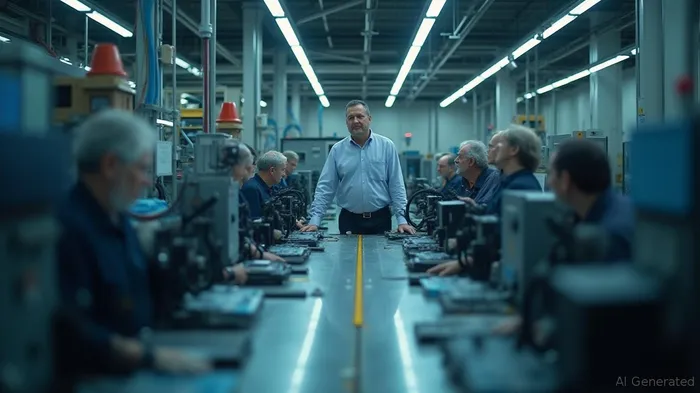Texas Instruments Invests $600 Billion in US Semiconductor Factories
Texas Instruments (TI) has unveiled an ambitious investment plan, committing over 600 billion dollars to build seven semiconductor factories across the United States. This initiative, which includes four factories in Texas and three in Utah, represents the largest investment in the history of the U.S. semiconductor manufacturingTSM-- industry. The investment in Texas amounts to 460 billion dollars, while Utah will receive approximately 150 billion dollars. This substantial investment is expected to create over 60,000 new jobs, further bolstering the region's economic growth and technological advancement.
Unlike companies such as NVIDIANVDA--, which focus on producing advanced AI chips, TITIC-- specializes in manufacturing analogADI-- or foundational chips used in everyday devices like smartphones, automobiles, and medical equipment. The company boasts a large customer base, including major consumer electronics and automotive manufacturers such as Apple and Ford. TI's investment plan aims to support the core components required by nearly all electronic systems—analog chips and embedded processing chips. With the rapid growth of smartphones, automotive electronics, and the Internet of Things (IoT), the demand for these chips is increasing. TI's expansion plans are designed to meet the growing market demand.
TI's investment will focus on building reliable and cost-effective 300-millimeter wafer production capabilities. The company's CEO highlighted that this investment is crucial for supporting the core components needed for almost all electronic systems, including analog chips and embedded processing chips. The demand for these chips is driven by the rapid growth of smartphones, automotive electronics, and the IoT. TI's expansion plans are aimed at meeting the increasing market demand for these essential components.
The investment will be distributed across three manufacturing bases: Texas's Sherman, Richardson, and Utah's Lehi. In Richardson, TI's second 300-millimeter analog wafer fab, RFAB2, is already in full production, following the launch of the first 300-millimeter analog wafer fab, RFAB1, in 2011. In Lehi, TI is accelerating the construction of its first 300-millimeter wafer fab, LFAB1, and the second wafer fab, LFAB2, is also under construction. These factories will produce billions of U.S.-made chips daily, contributing to the country's semiconductor manufacturing capabilities.

Stay ahead with the latest US stock market happenings.
Latest Articles
Stay ahead of the market.
Get curated U.S. market news, insights and key dates delivered to your inbox.

Comments
No comments yet